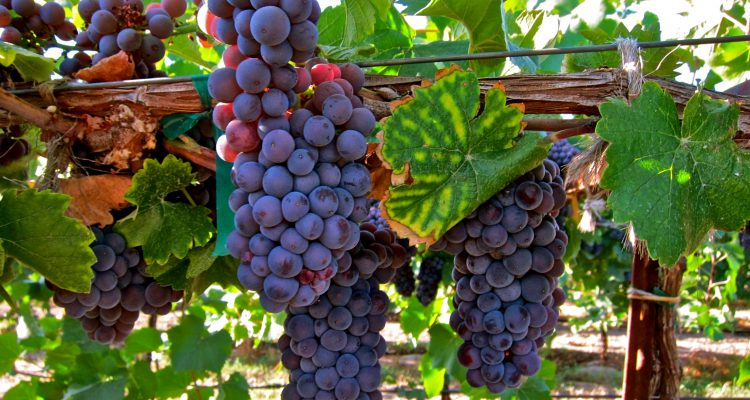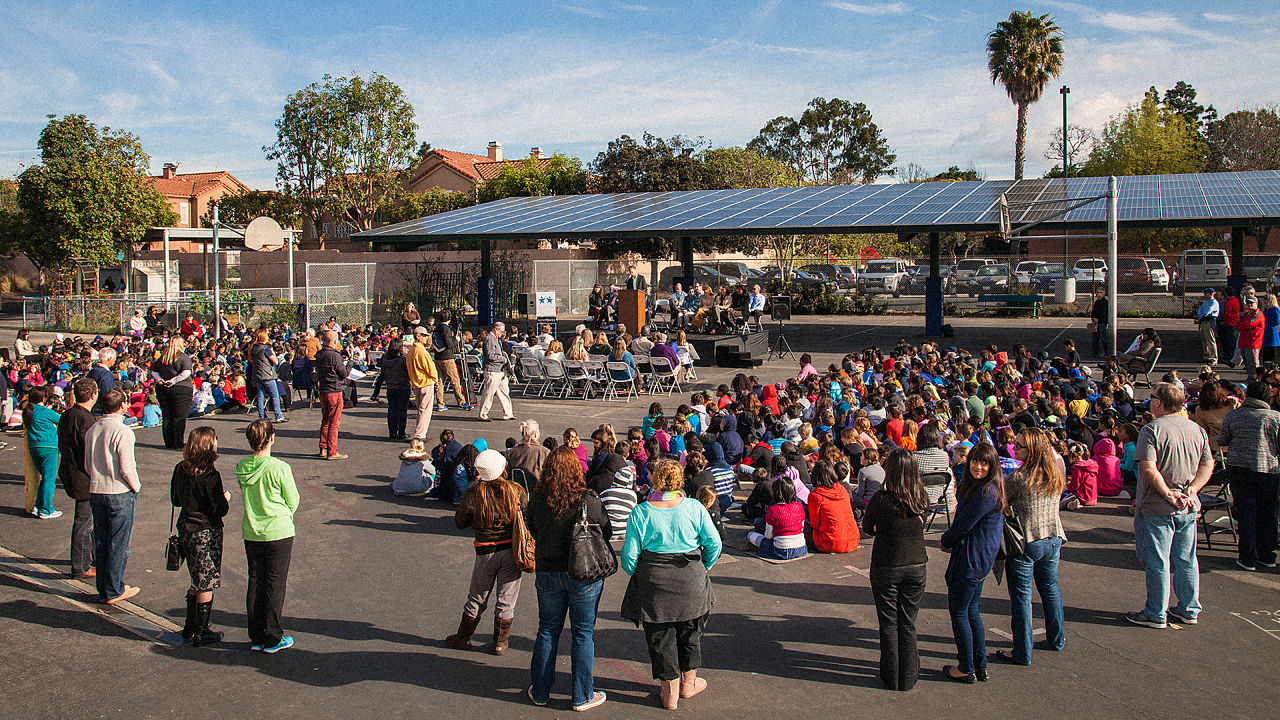The Many Facets of
Anthroposophy in the News
To see a subset of this Article list, you may enter a keyword and/or a
category you are interested in below. Click on the Show Links
button to view your selection. The "Hits" column represents the number
of times users have selected this link. The Links at the top and bottom
of the table will help you navigate through the pages of articles. There
are 20 articles displayed on every page, and the number of pages varies
depending on Category. Click here to see a list of
e.Libd News Items.
| Description | Category | Hits |
|---|
|
 Organic wine consumption worldwide is growing faster than wine consumption as a whole. According to the SAQ, sales rose from $29.4 million to $34.7 million between 2014 and 2015. So while wine sales have essentially flattened out, organic wine sales rose 18 per cent. This has led to more vineyards being converted from conventional to organic, or biodynamic, growing methods.
(Friday April 1st, 2016 — Montreal Gazette - Montreal, Quebec Canada)
Organic wine consumption worldwide is growing faster than wine consumption as a whole. According to the SAQ, sales rose from $29.4 million to $34.7 million between 2014 and 2015. So while wine sales have essentially flattened out, organic wine sales rose 18 per cent. This has led to more vineyards being converted from conventional to organic, or biodynamic, growing methods.
(Friday April 1st, 2016 — Montreal Gazette - Montreal, Quebec Canada)
|
Bio Agriculture |
157 |
|
 Camphill Communities has a lot to celebrate this year and most of it comes to fruition this month. The first, a global textile exhibition called World Wide Weave, arrives in Barrie next week. It coincides with the annual Community Action Award tribute dinner, which this year honours internationally renowned artist, goldsmith, teacher and humanitarian, Donald Stuart. ... The Barrie Camphill marks its 30th anniversary this year.
(Friday April 1st, 2016 — The Barrie Examiner - Barrie, Ontario Canada)
Camphill Communities has a lot to celebrate this year and most of it comes to fruition this month. The first, a global textile exhibition called World Wide Weave, arrives in Barrie next week. It coincides with the annual Community Action Award tribute dinner, which this year honours internationally renowned artist, goldsmith, teacher and humanitarian, Donald Stuart. ... The Barrie Camphill marks its 30th anniversary this year.
(Friday April 1st, 2016 — The Barrie Examiner - Barrie, Ontario Canada)
|
Camphill |
155 |
|
 Nearly a dozen fishing and environmental groups have filed suit against the Food and Drug Administration in an effort to block its recent approval of genetically modified salmon. The plaintiffs, represented by the Center for Food Safety and Earthjustice, argue that by green-lighting the first-ever genetically altered animal slated for human consumption, the FDA violated the law and ignored potential risks to wild salmon populations, the environment and fishing communities.
(Thursday March 31st, 2016 — Huffington Post - USA)
Nearly a dozen fishing and environmental groups have filed suit against the Food and Drug Administration in an effort to block its recent approval of genetically modified salmon. The plaintiffs, represented by the Center for Food Safety and Earthjustice, argue that by green-lighting the first-ever genetically altered animal slated for human consumption, the FDA violated the law and ignored potential risks to wild salmon populations, the environment and fishing communities.
(Thursday March 31st, 2016 — Huffington Post - USA)
|
Miscellaneous |
177 |
|
Sounds that were previously incomprehensible to us now become the meaningful language of nature. In 1912, Rudolf Steiner, an Austrian initiate, scientist, artist and philosopher, brought a new art of movement into existence on the foundation of anthroposophy, which he called eurythmy. ... Eurythmy is speech and music made visible through conscious movements of the limbs. Eurythmy uses for its expression the most divine of all instruments, the human being.
(Thursday March 31st, 2016 — Economic Times (blog) - The Times of India)
|
Eurythmy |
147 |
|
 As part of this event, dozens of wine producers brought their wines to show to prospective importers. You would think that the best Italian wines already have importers. But that�s not always the case. Some wineries are from up-and-coming areas of Italy, some are small producers, and some are new. And many make wines that are trending in the world of wine: organic, biodynamic, ros�, and the new col fondo prosecco.
(Thursday March 31st, 2016 — Palate Pres )
As part of this event, dozens of wine producers brought their wines to show to prospective importers. You would think that the best Italian wines already have importers. But that�s not always the case. Some wineries are from up-and-coming areas of Italy, some are small producers, and some are new. And many make wines that are trending in the world of wine: organic, biodynamic, ros�, and the new col fondo prosecco.
(Thursday March 31st, 2016 — Palate Pres )
|
Bio Agriculture |
161 |
|
 Homeopathy, holistic medicine, herbal medicine, acupuncture and traditional Chinese medicine will acquire the same status as conventional medicine by May 2017 when it comes to health insurance.
(Tuesday March 29th, 2016 — swissinfo.ch)
Homeopathy, holistic medicine, herbal medicine, acupuncture and traditional Chinese medicine will acquire the same status as conventional medicine by May 2017 when it comes to health insurance.
(Tuesday March 29th, 2016 — swissinfo.ch)
|
Medicine |
159 |
|
 "The increasing demand for organic products means that bigger volumes are destined for industrial processing with a high added value. In addition, over the past couple of years, we have introduced biodynamic products, which are very popular especially in Northern Europe," explains Antonio Codo, sales manager for Veritas Biofrutta srl. Veritas Biofrutta is the Gruppo Mazzoni company dedicated entirely to the sale of organic and biodynamic products. It was established in 2002 and currently manages around 15,000 tons of produce a year (apples, pears, kiwis, citrus fruit, vegetables and processed produce), representing 16% of the entire turnover of the group.
(Friday March 25th, 2016 — FreshPlaza - The Netherlands)
"The increasing demand for organic products means that bigger volumes are destined for industrial processing with a high added value. In addition, over the past couple of years, we have introduced biodynamic products, which are very popular especially in Northern Europe," explains Antonio Codo, sales manager for Veritas Biofrutta srl. Veritas Biofrutta is the Gruppo Mazzoni company dedicated entirely to the sale of organic and biodynamic products. It was established in 2002 and currently manages around 15,000 tons of produce a year (apples, pears, kiwis, citrus fruit, vegetables and processed produce), representing 16% of the entire turnover of the group.
(Friday March 25th, 2016 — FreshPlaza - The Netherlands)
|
Bio Agriculture |
149 |
|
 The Longannet power station, the last and largest coal-fired power plant in Scotland, ceased operations Thursday. What once was the largest coal plant in Europe shut down after 46 years before the eyes of workers and journalists, who gathered in the main control room.
(Thursday March 24th, 2016 — Think Progress- USA)
The Longannet power station, the last and largest coal-fired power plant in Scotland, ceased operations Thursday. What once was the largest coal plant in Europe shut down after 46 years before the eyes of workers and journalists, who gathered in the main control room.
(Thursday March 24th, 2016 — Think Progress- USA)
|
Miscellaneous |
150 |
|
 For the first time in 40 years, conservationists have made physical contact with a Sumatran rhino in Kalimantan, the Indonesian part of the island of Borneo:
(Thursday March 24th, 2016 — Huffington Post - USA)
For the first time in 40 years, conservationists have made physical contact with a Sumatran rhino in Kalimantan, the Indonesian part of the island of Borneo:
(Thursday March 24th, 2016 — Huffington Post - USA)
|
Miscellaneous |
138 |
|
 Renewable energy investment set a new world record in 2015, with emerging economies led by China topping the investment of developed nations for the first time, according to a United Nations-backed report unveiled Thursday. Last year, the world invested $286 billion in green energy � some 3 percent more than the last record set in 2011 � mostly on wind and solar, according to the report ...
(Thursday March 24th, 2016 — Think Progress- USA)
Renewable energy investment set a new world record in 2015, with emerging economies led by China topping the investment of developed nations for the first time, according to a United Nations-backed report unveiled Thursday. Last year, the world invested $286 billion in green energy � some 3 percent more than the last record set in 2011 � mostly on wind and solar, according to the report ...
(Thursday March 24th, 2016 — Think Progress- USA)
|
Miscellaneous |
153 |
|
 In a study published Monday in Nature Plants, a coalition of international scientists embarked on a first-of-its-kind effort to map the representation of crop wild relatives � crops that are genetically related but have evolved apart from domestication � in seed banks worldwide. They found that for the majority of the 81 crops they looked at, wild relatives were insufficiently represented in seed banks (also called gene banks), signaling a crucial disconnect between seed banks and the potential genetic diversity available to farmers and breeders.
(Wednesday March 23rd, 2016 — Think Progress- USA)
In a study published Monday in Nature Plants, a coalition of international scientists embarked on a first-of-its-kind effort to map the representation of crop wild relatives � crops that are genetically related but have evolved apart from domestication � in seed banks worldwide. They found that for the majority of the 81 crops they looked at, wild relatives were insufficiently represented in seed banks (also called gene banks), signaling a crucial disconnect between seed banks and the potential genetic diversity available to farmers and breeders.
(Wednesday March 23rd, 2016 — Think Progress- USA)
|
Miscellaneous |
147 |
|
 The U.S. Fish and Wildlife Service announced on March 15 that it will consider whether to include the Western bumblebee and the Yellow-banded bumblebee on the list of protected species under the Endangered Species Act (ESA). Currently, no bees are listed as threatened or endangered under the ESA. That�s a little surprising, given all the attention Colony Collapse Disorder and bee disappearance have been getting for the last few years.
(Monday March 21st, 2016 — Care2.com)
The U.S. Fish and Wildlife Service announced on March 15 that it will consider whether to include the Western bumblebee and the Yellow-banded bumblebee on the list of protected species under the Endangered Species Act (ESA). Currently, no bees are listed as threatened or endangered under the ESA. That�s a little surprising, given all the attention Colony Collapse Disorder and bee disappearance have been getting for the last few years.
(Monday March 21st, 2016 — Care2.com)
|
Miscellaneous |
211 |
|
 The Maryland House passed a bill recently that would implement a partial ban on neonicotinoids, a widely-used class of pesticides that�s been shown to harm honeybees. The bill would still allow farmers to apply neonics on their crops, but would ban everyday consumers from purchasing neonics for their home gardens or other use.
(Friday March 18th, 2016 — Think Progress- USA)
The Maryland House passed a bill recently that would implement a partial ban on neonicotinoids, a widely-used class of pesticides that�s been shown to harm honeybees. The bill would still allow farmers to apply neonics on their crops, but would ban everyday consumers from purchasing neonics for their home gardens or other use.
(Friday March 18th, 2016 — Think Progress- USA)
|
Bio Agriculture |
154 |
|
On Thursday, March 24, Whole Foods Market Arroyo Parkway in Pasadena will be donating 5% of their total net sales for the day, to support the creation of the new all-school learning biodynamic gardens at Pasadena Waldorf School. The garden site, approximately 5,000 square feet, sits on the school�s newly acquired 2nd campus on Mendocino Street in Altadena.
(Tuesday March 15th, 2016 — Pasadena Now - Pasadena, California USA)
|
Adult Education |
134 |
|
 We�re working on a new project about changes in American agriculture. We want to hear from farmers � their hopes, their fears, their challenges and successes � in order to tell a more complete story. If you wish to be a part of this, please send us an email describing your work to [email protected] with the subject line �Farming In America.�
(Tuesday March 15th, 2016 — Huffington Post - USA)
We�re working on a new project about changes in American agriculture. We want to hear from farmers � their hopes, their fears, their challenges and successes � in order to tell a more complete story. If you wish to be a part of this, please send us an email describing your work to [email protected] with the subject line �Farming In America.�
(Tuesday March 15th, 2016 — Huffington Post - USA)
|
Bio Agriculture |
135 |
|
 For example, winegrower Matthieu Barret has, since 1998, made terrific estate-grown wines from Cornas and Saint-Joseph, two highly regarded northern Rh�ne crus famed for producing terrific 100-percent syrah-based reds. As part of his dedicated approach, Barret follows organic and biodynamic principles.
(Tuesday March 15th, 2016 — Tribune-Review )
For example, winegrower Matthieu Barret has, since 1998, made terrific estate-grown wines from Cornas and Saint-Joseph, two highly regarded northern Rh�ne crus famed for producing terrific 100-percent syrah-based reds. As part of his dedicated approach, Barret follows organic and biodynamic principles.
(Tuesday March 15th, 2016 — Tribune-Review )
|
Bio Agriculture |
133 |
|
 If you observed two elementary-school classes, one with children digging holes outside and the other where the kids were sitting at laptop computers gazing into monitors, in which �classroom� would you guess more learning is taking place? Educators who subscribe to the Waldorf progressive model of learning would �dig� the former natural environment over the latter.
(Monday March 14th, 2016 — The Daily News Journal - Murfreesboro, Tennessee USA)
If you observed two elementary-school classes, one with children digging holes outside and the other where the kids were sitting at laptop computers gazing into monitors, in which �classroom� would you guess more learning is taking place? Educators who subscribe to the Waldorf progressive model of learning would �dig� the former natural environment over the latter.
(Monday March 14th, 2016 — The Daily News Journal - Murfreesboro, Tennessee USA)
|
Waldorf |
556 |
|
 From pesticide and fungicide to soap making and cosmetics, neem oil is used in a wide variety of applications.
(Saturday March 12th, 2016 — WhaTech - India)
From pesticide and fungicide to soap making and cosmetics, neem oil is used in a wide variety of applications.
(Saturday March 12th, 2016 — WhaTech - India)
|
Bio Agriculture |
957 |
|
 A new study suggests that schools constructed with green building principles make for more environmentally aware students.
(Friday March 11th, 2016 — Co.Design - New York, New York USA)
A new study suggests that schools constructed with green building principles make for more environmentally aware students.
(Friday March 11th, 2016 — Co.Design - New York, New York USA)
|
Waldorf |
245 |
|
The Camphill movement was founded to give pride to the more vulnerable members of our society, by allowing them to grow in the freedom and protection of shared community. In the past 70 years this great family has spread through Ireland, Britain, Europe, America, Africa and the Far East. As it has grown, it has changed. Members judged able now live more independently, though still with support.
(Friday March 11th, 2016 — Irish Times )
|
Camphill |
557 |
|
|
|